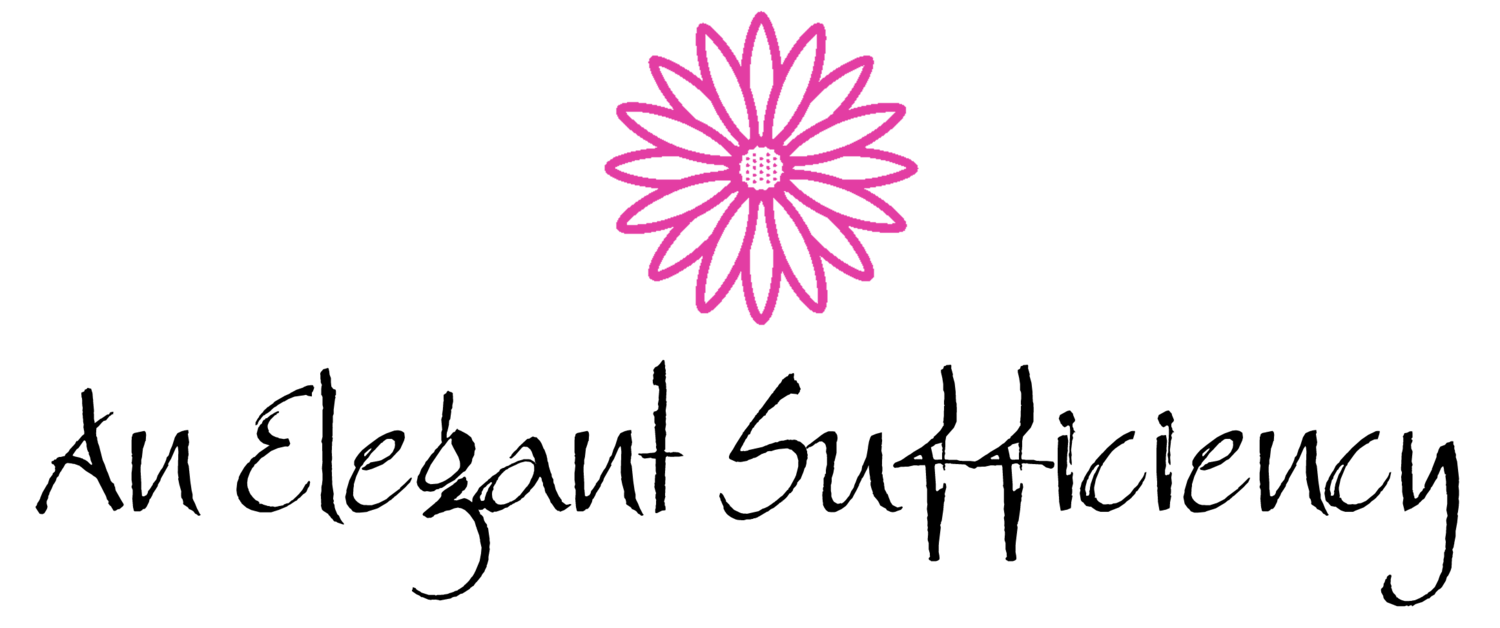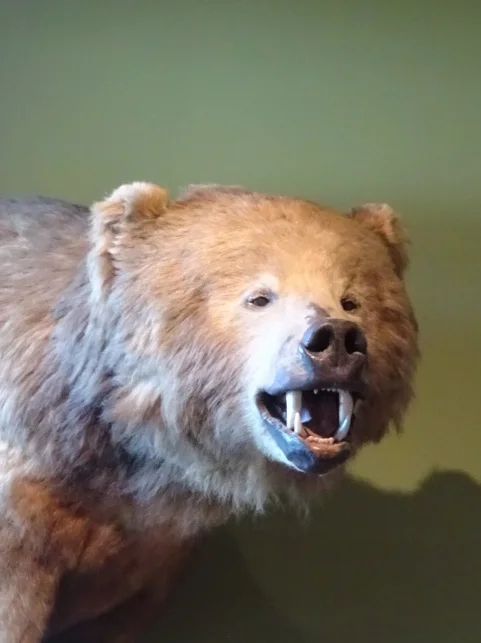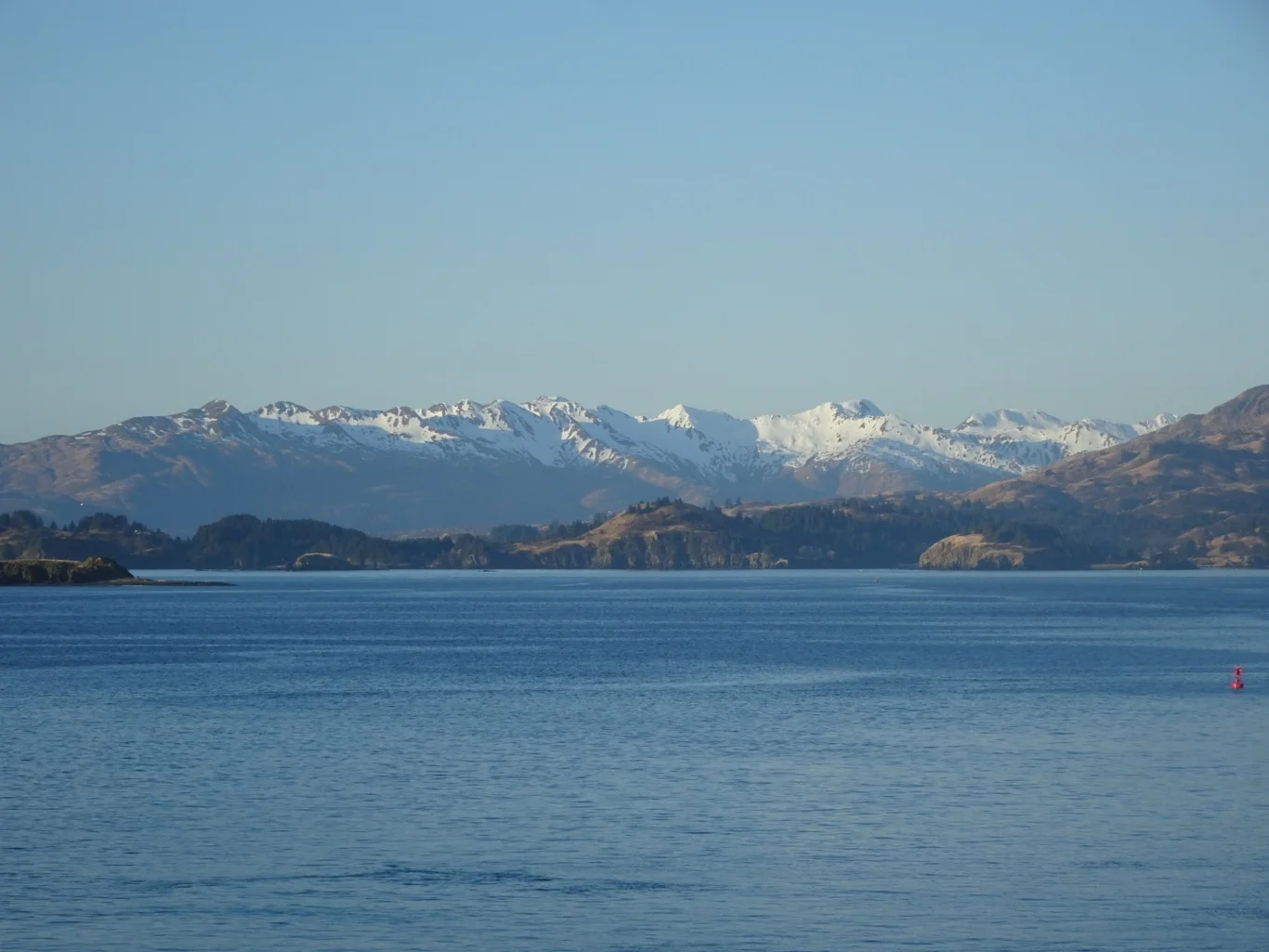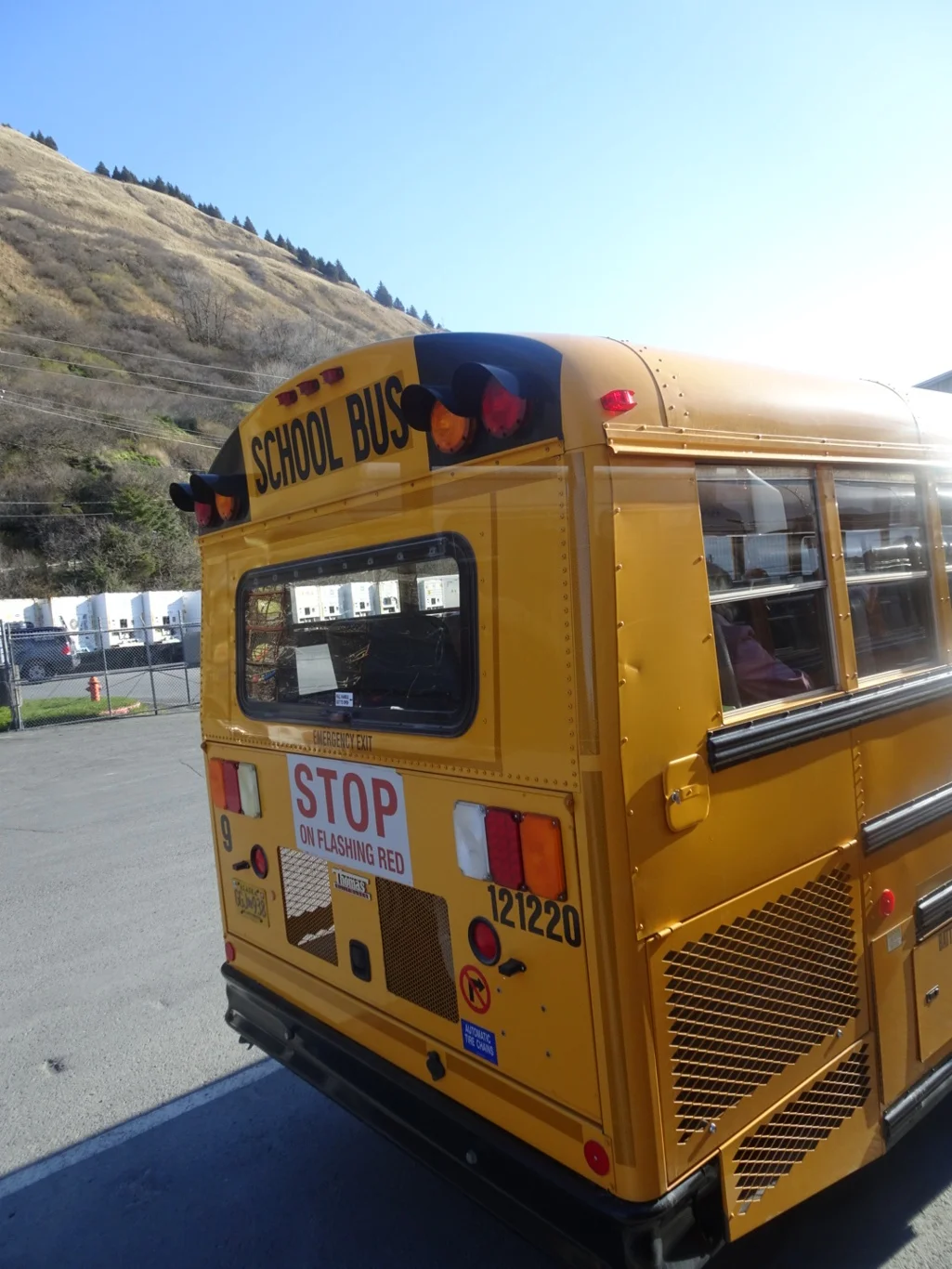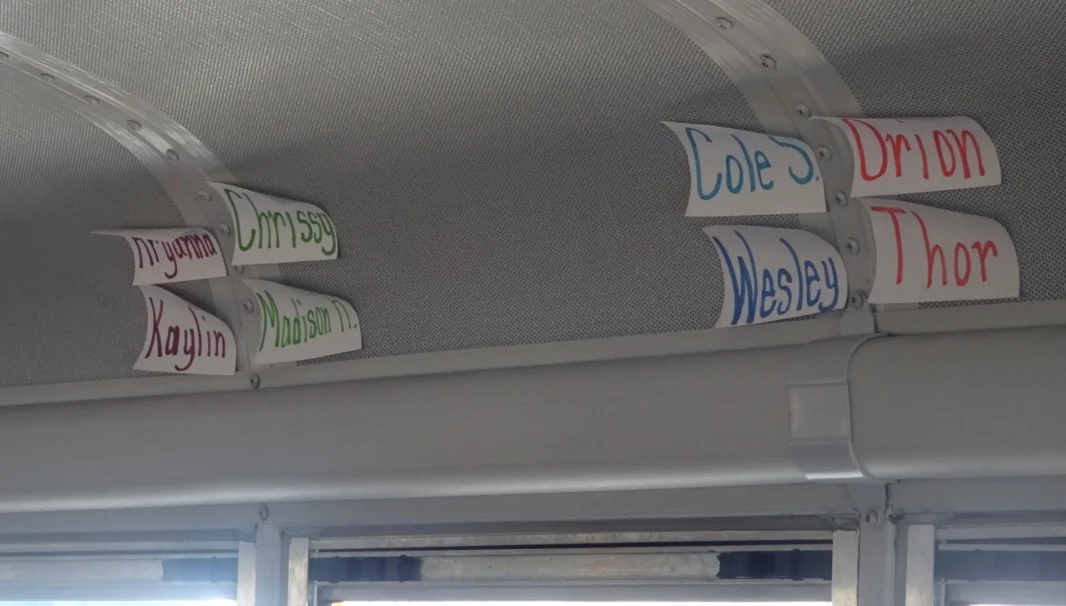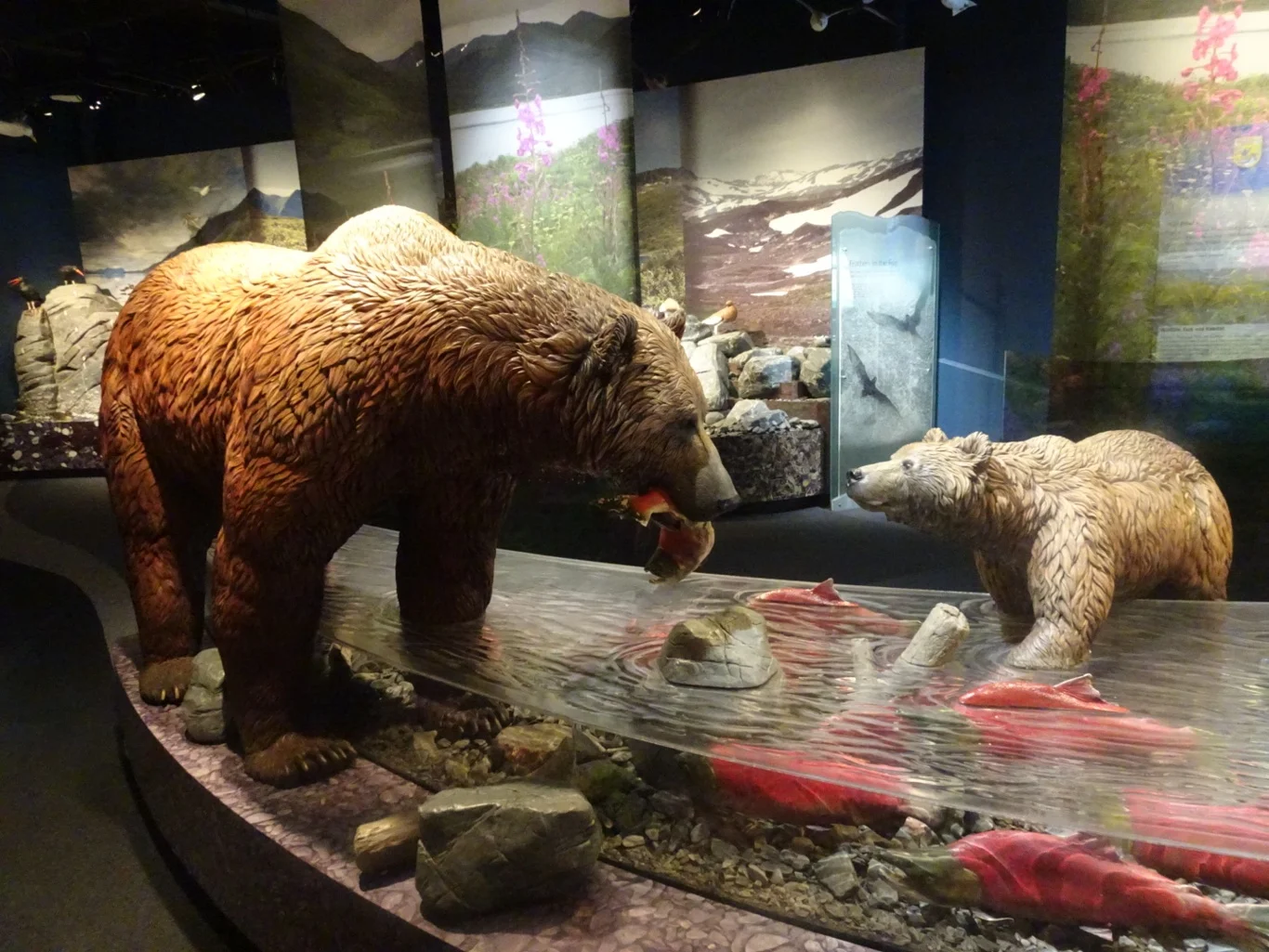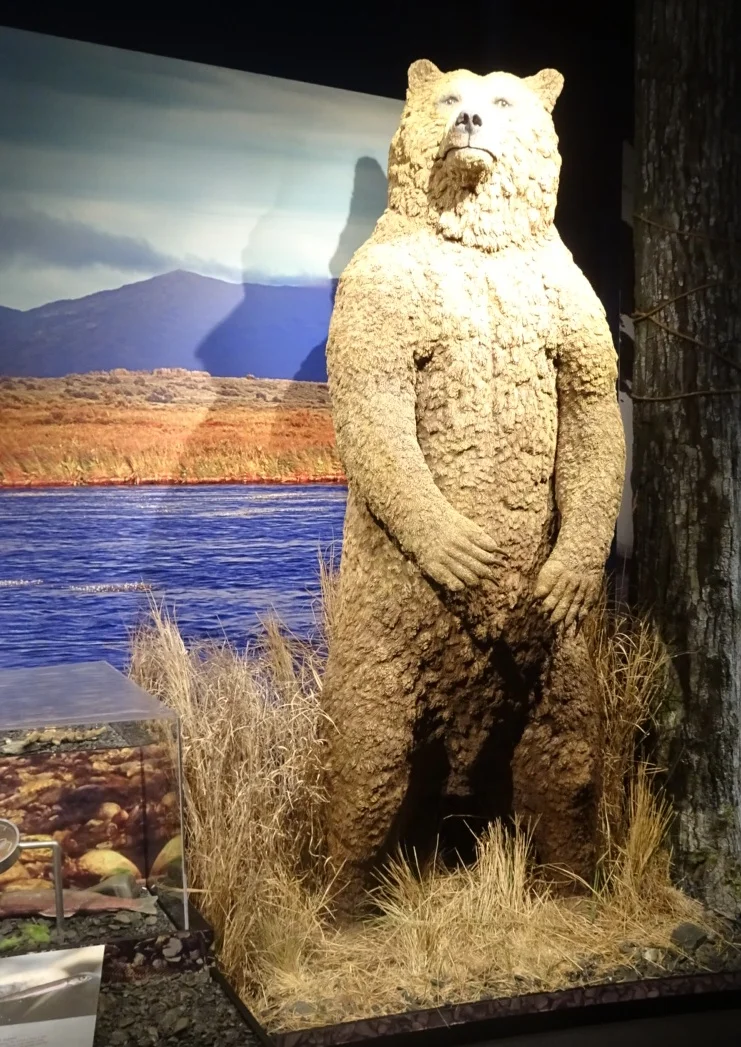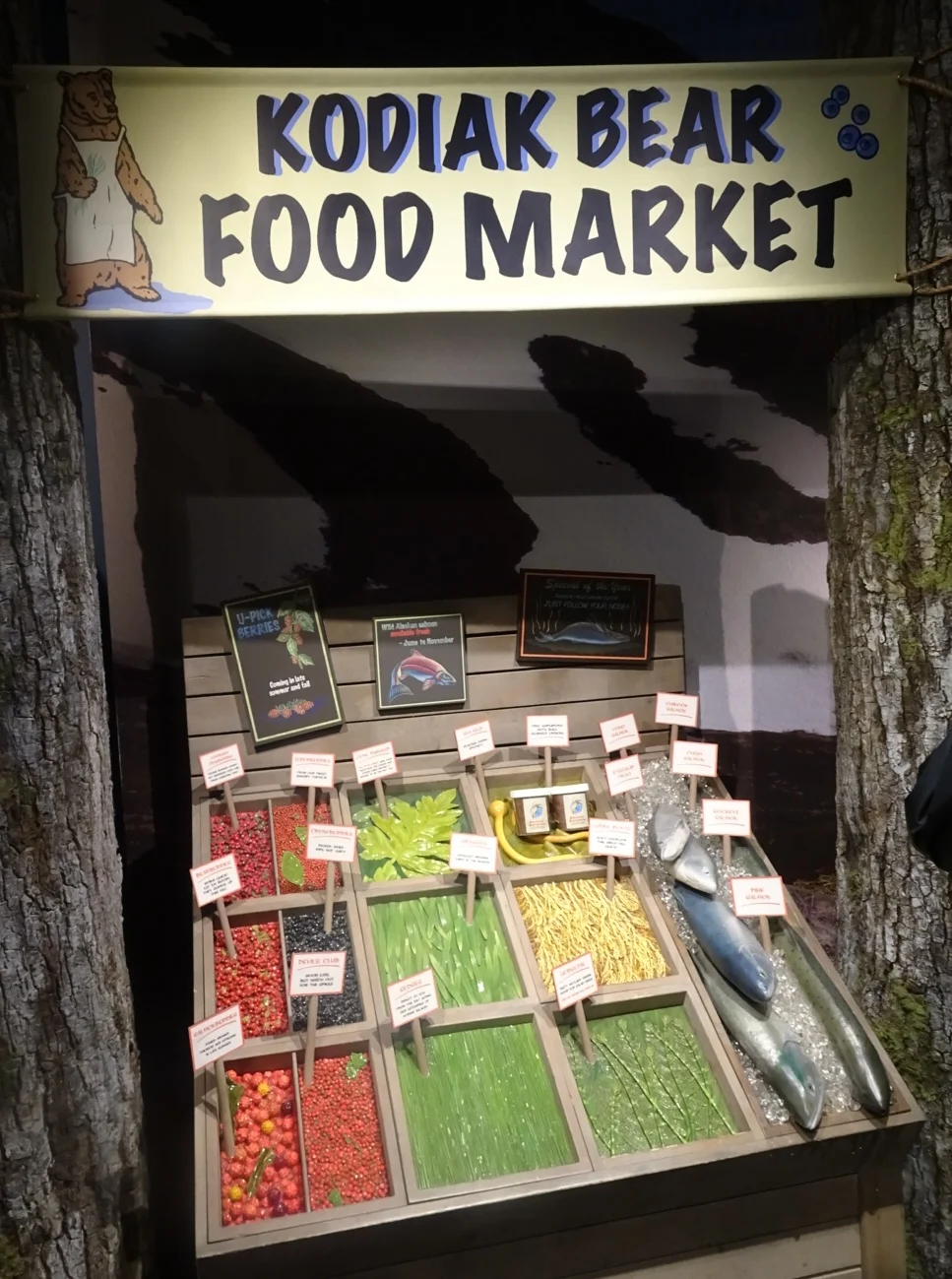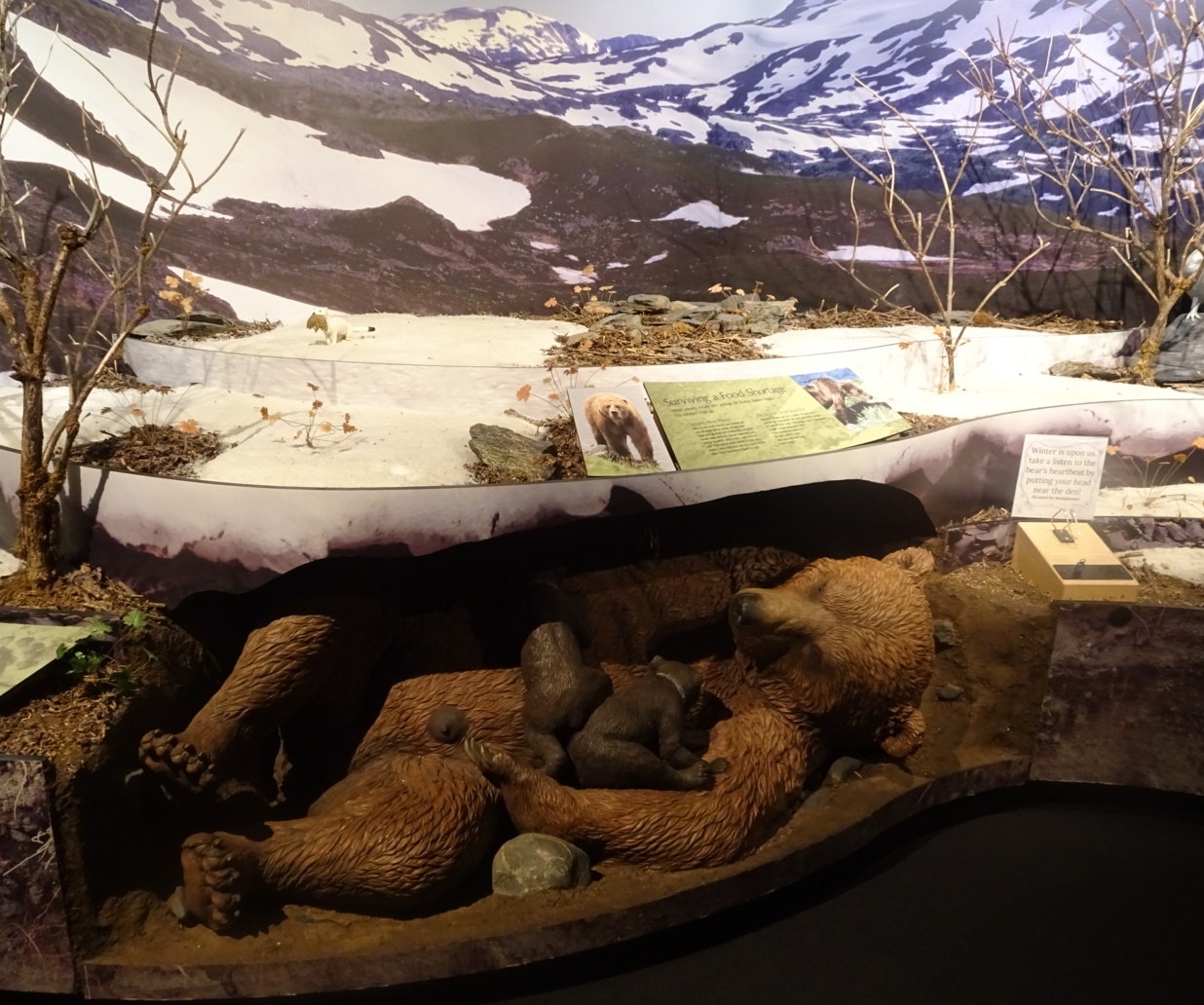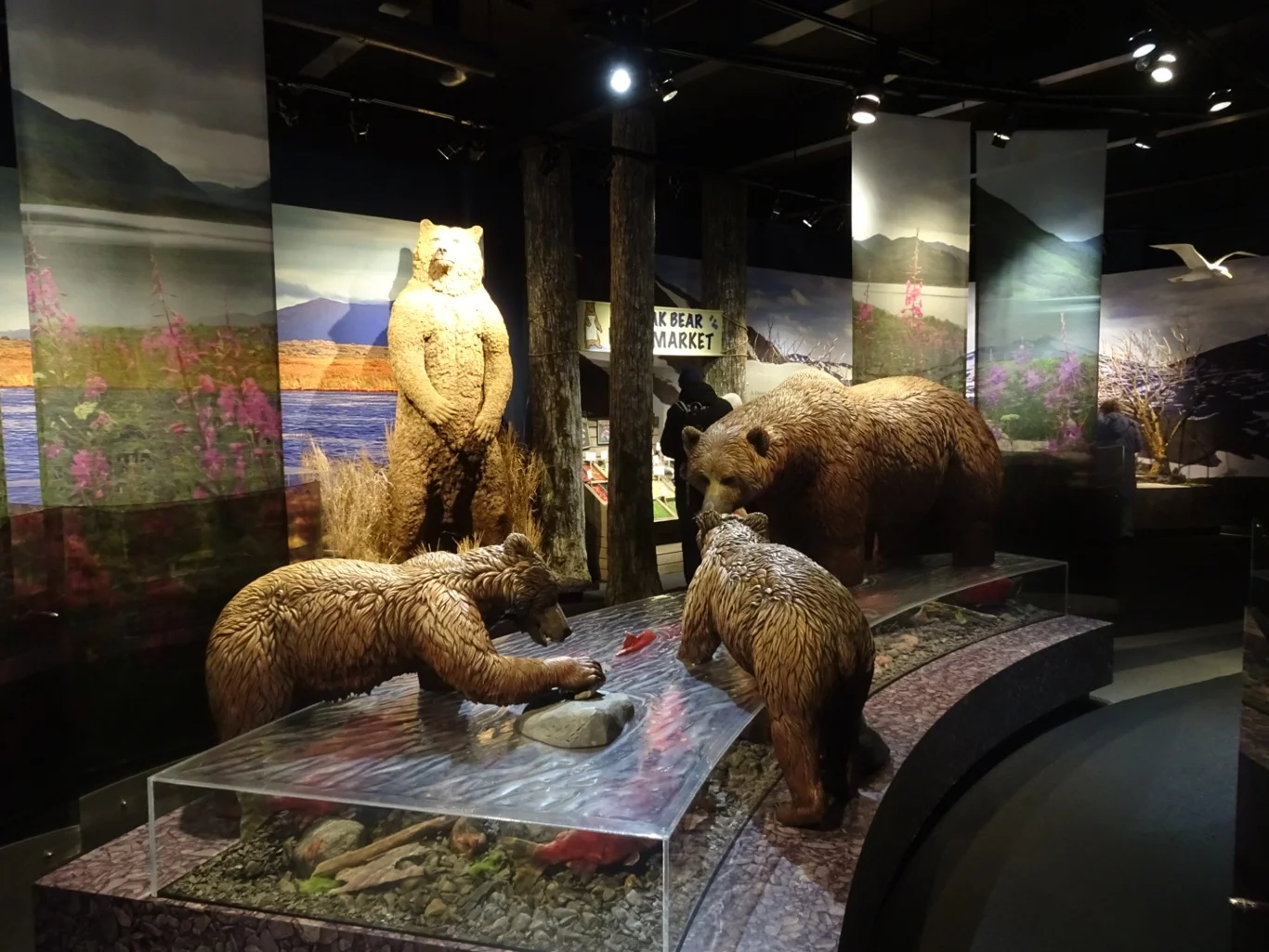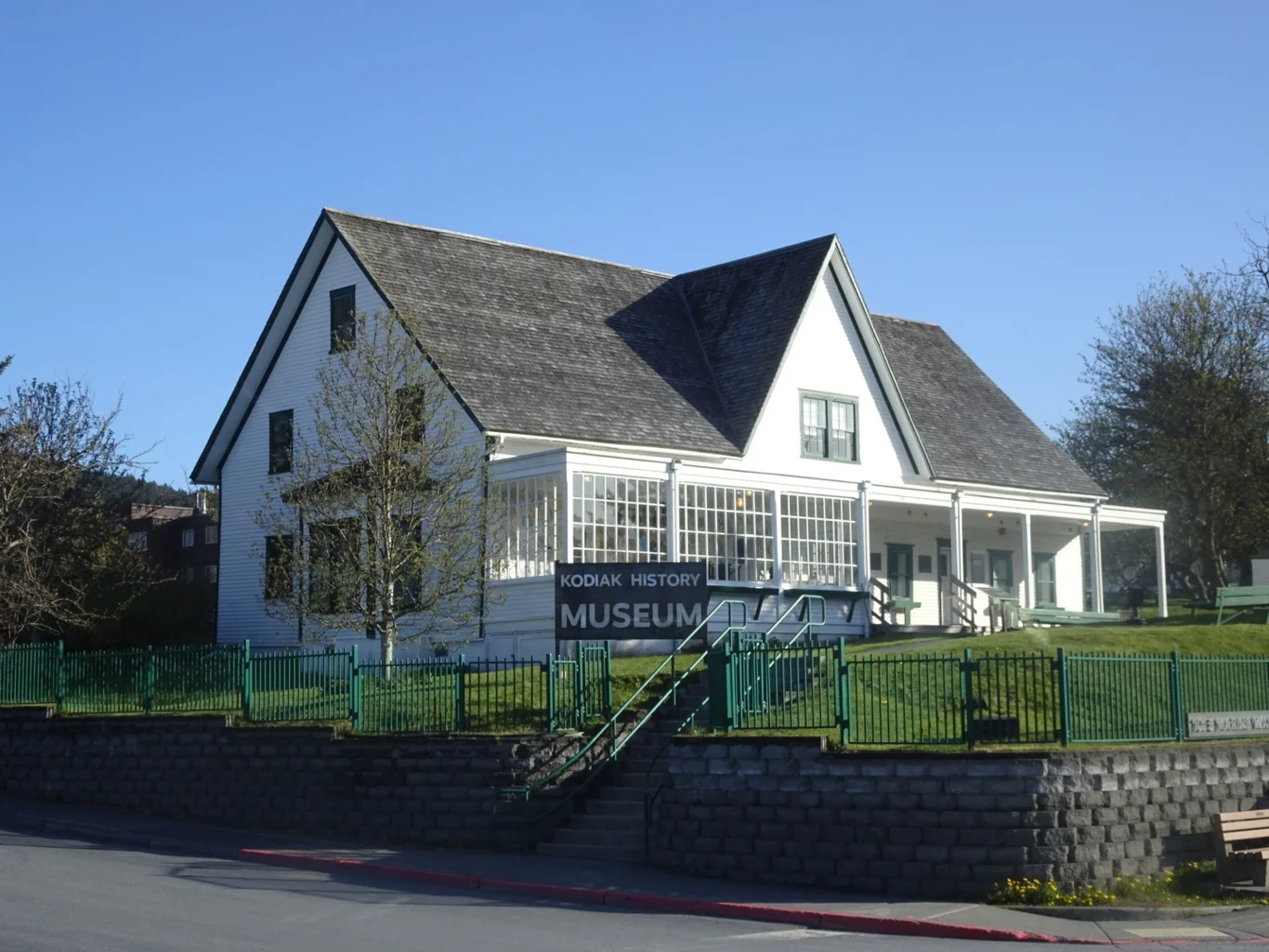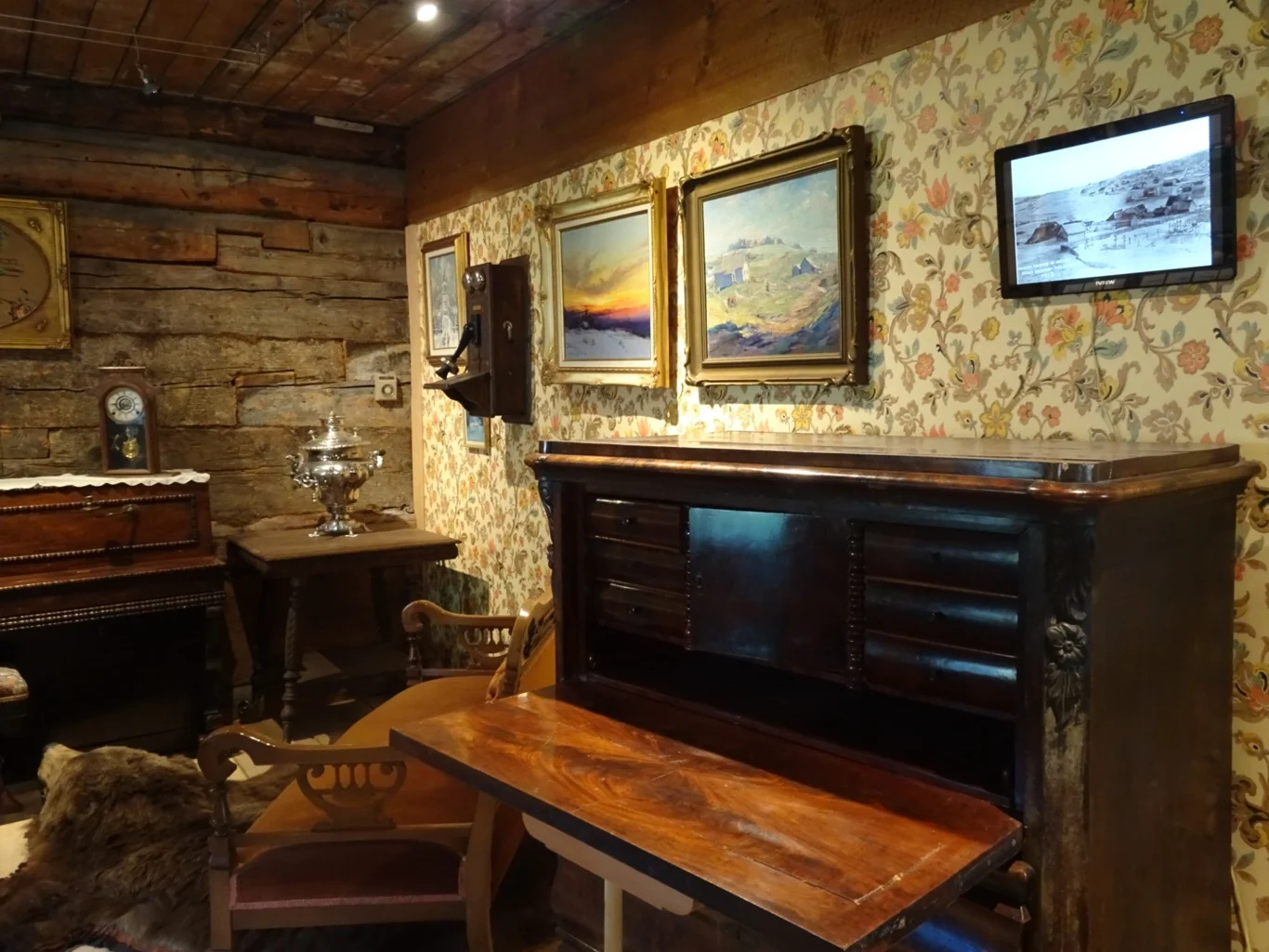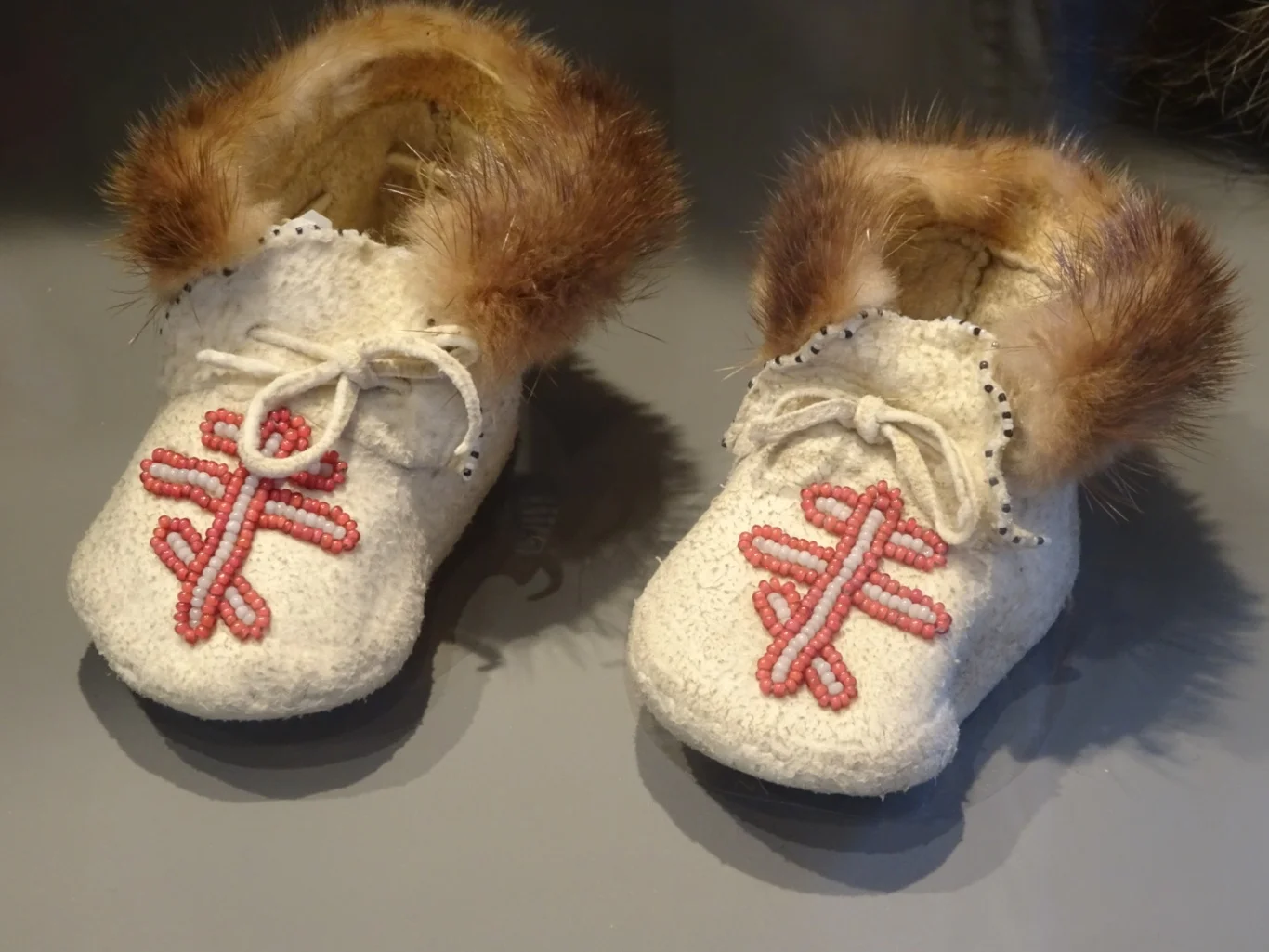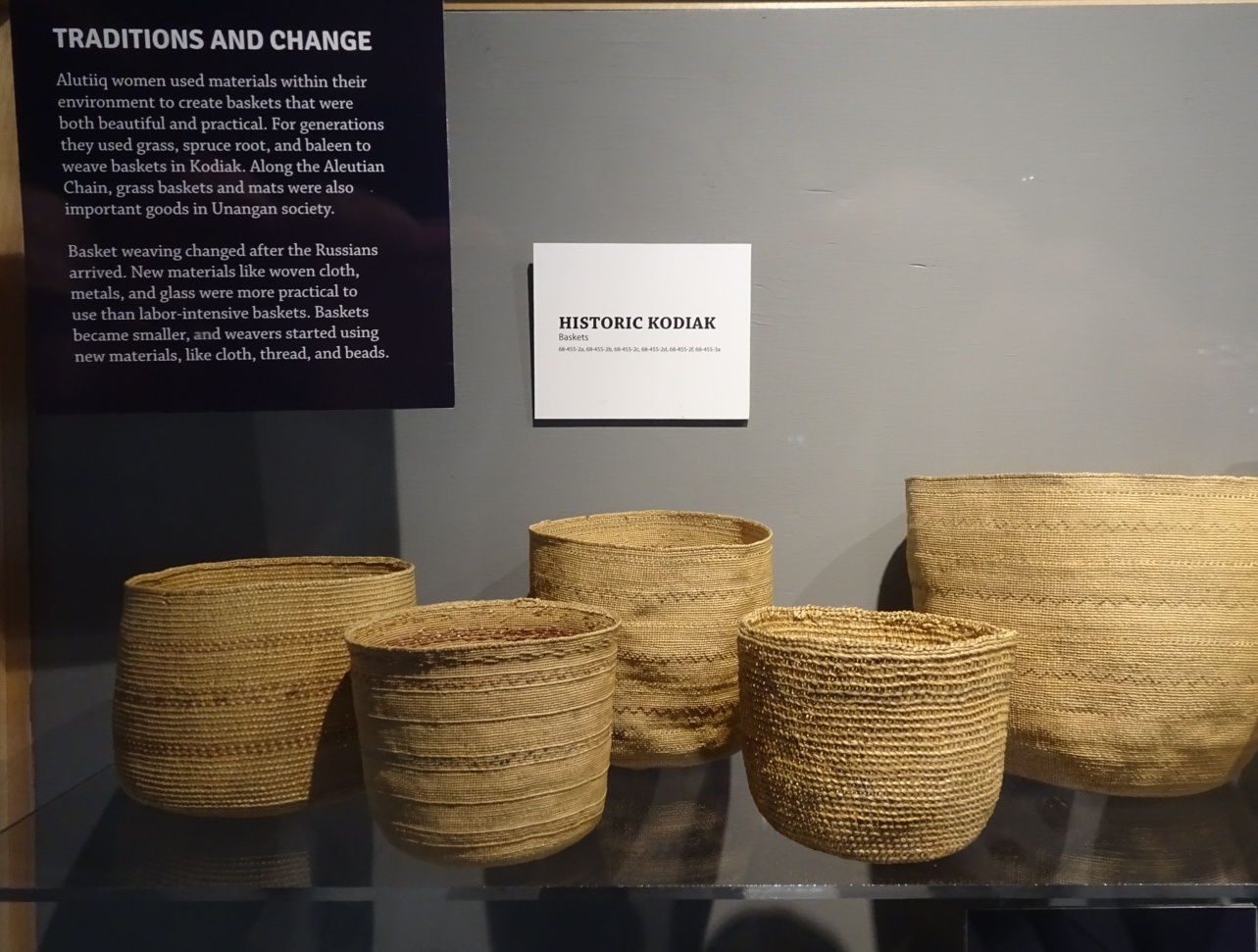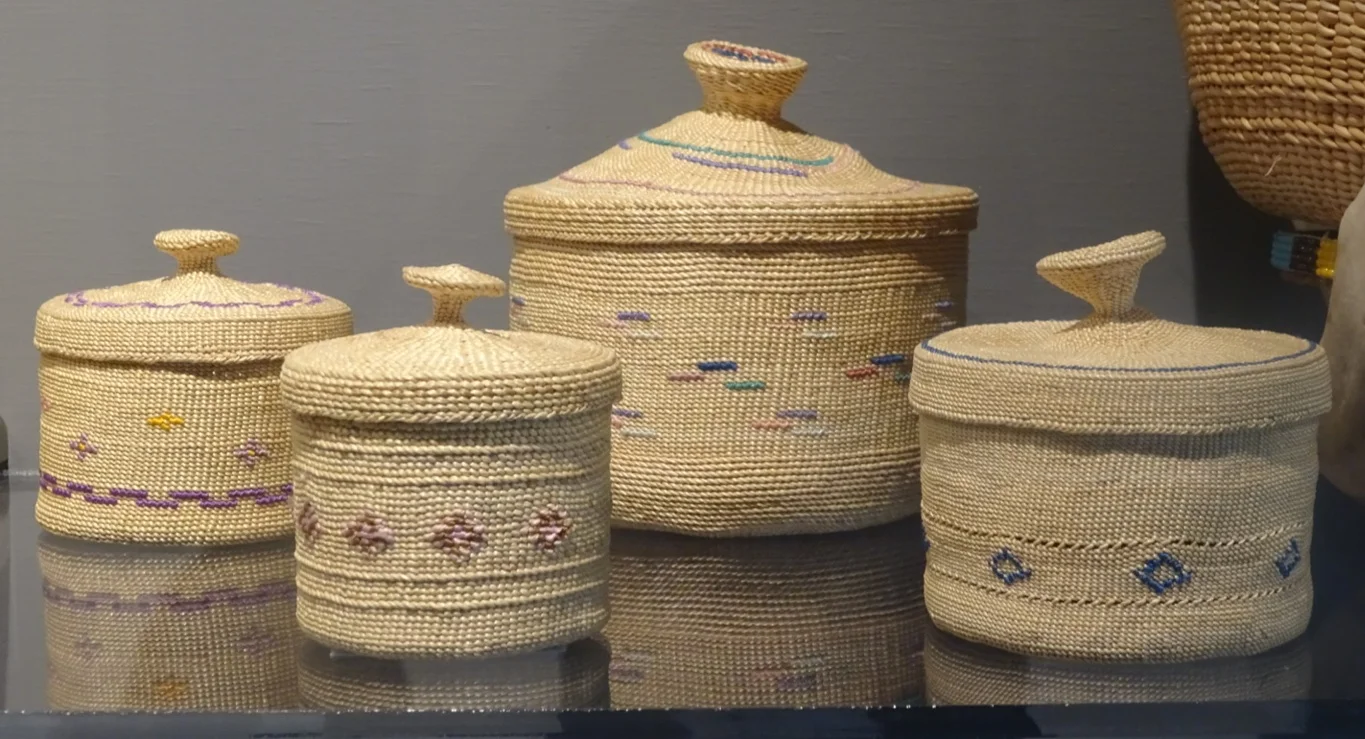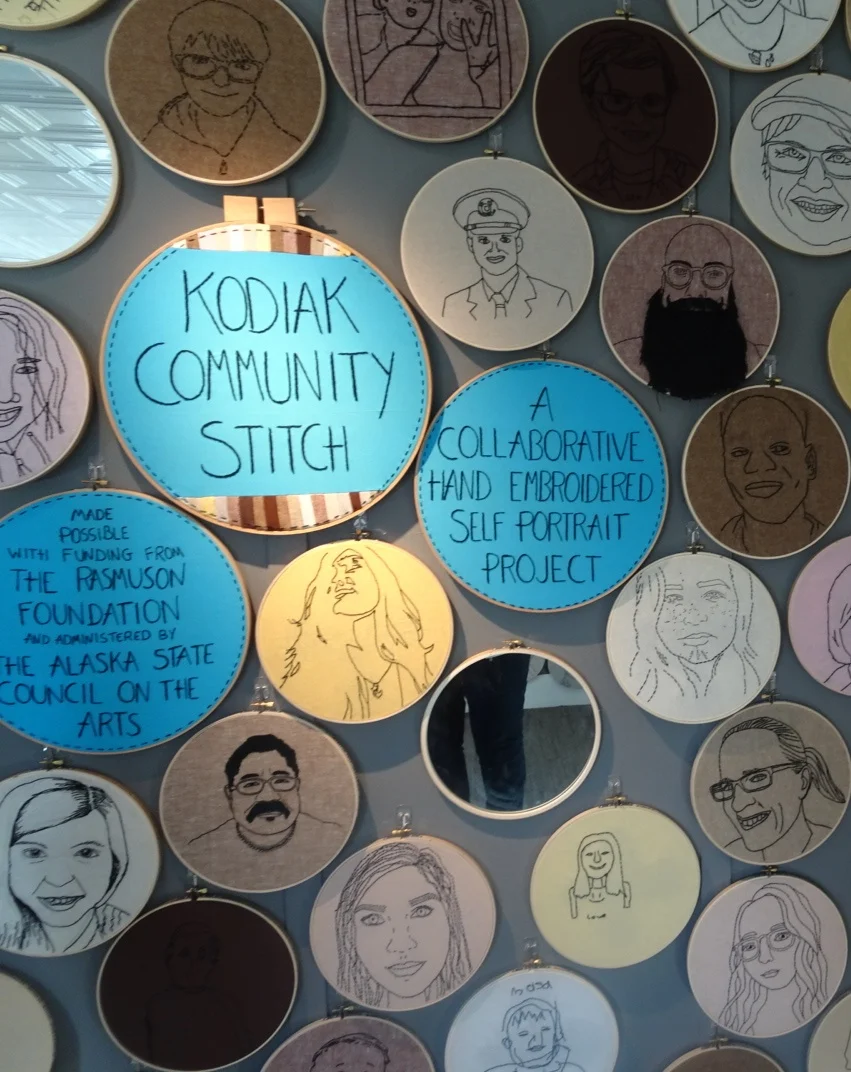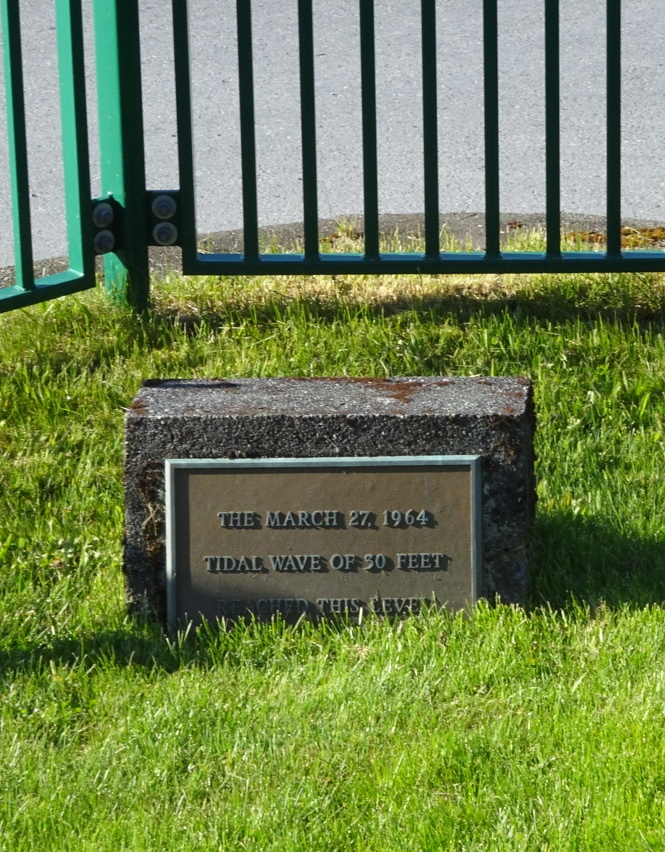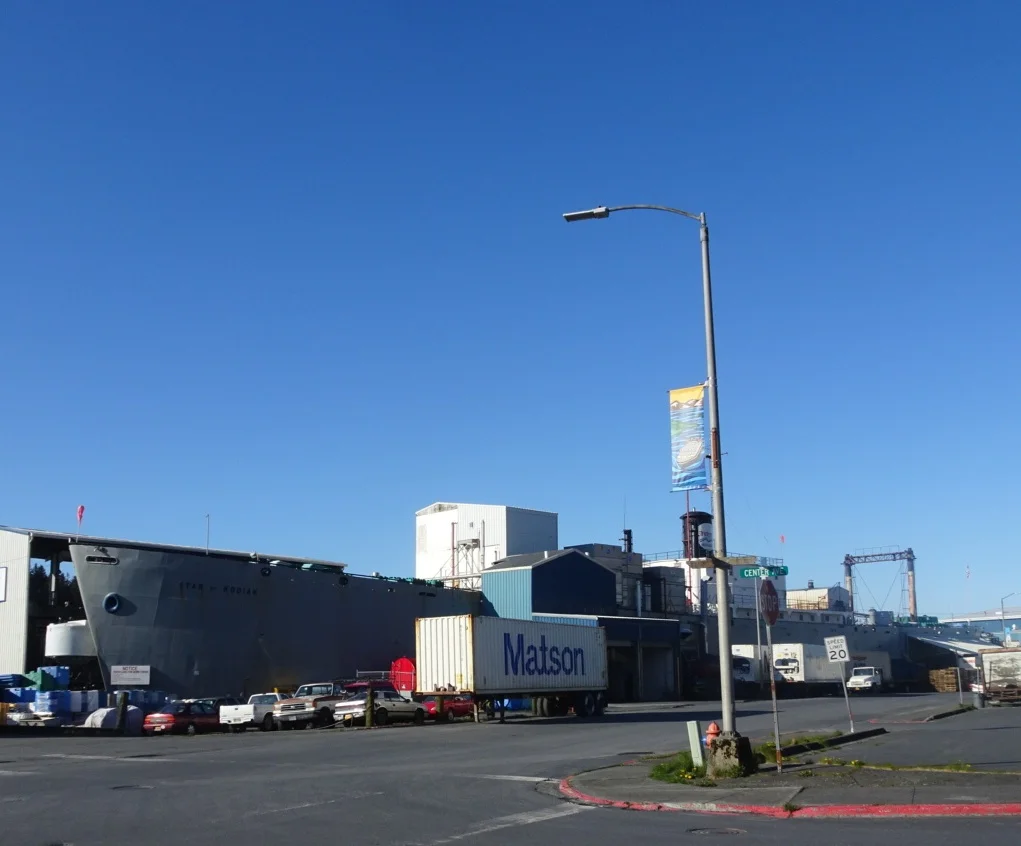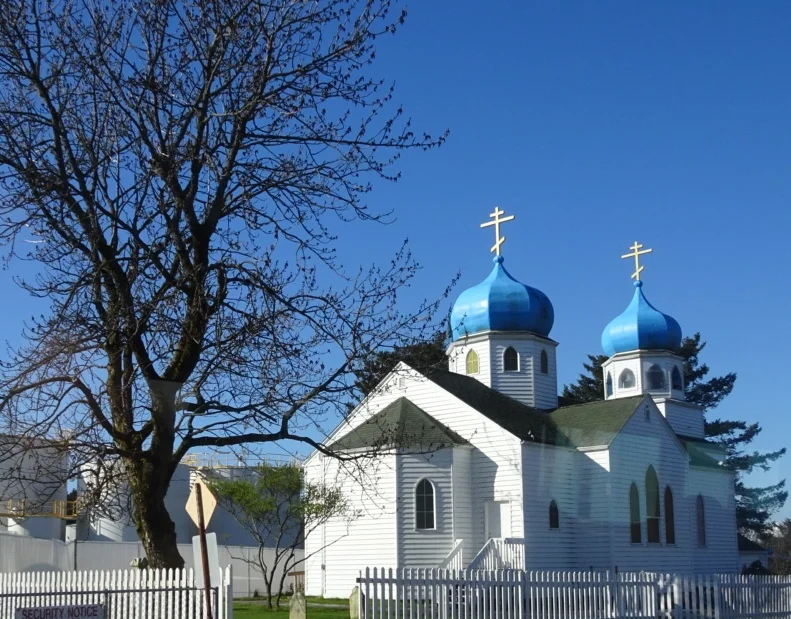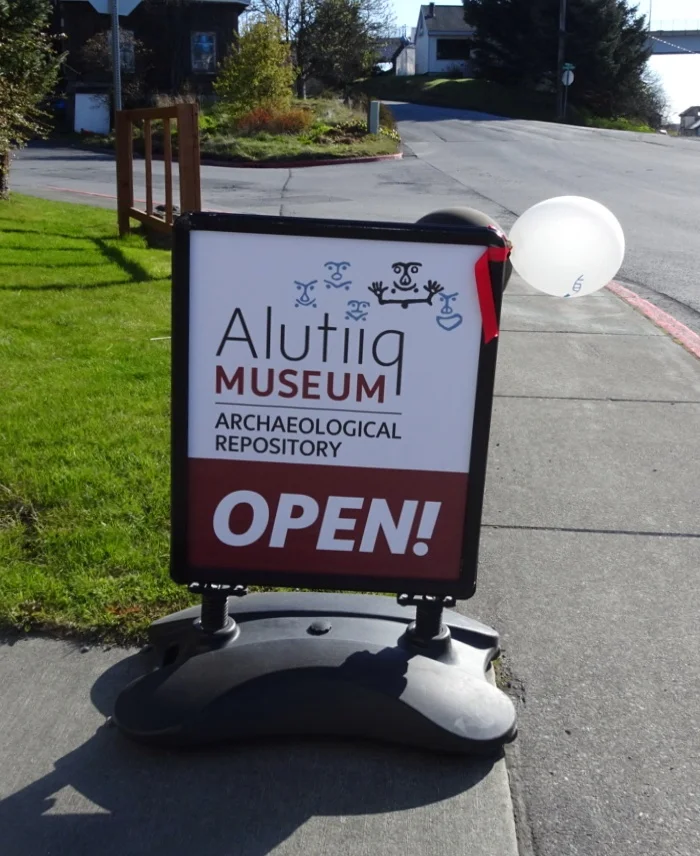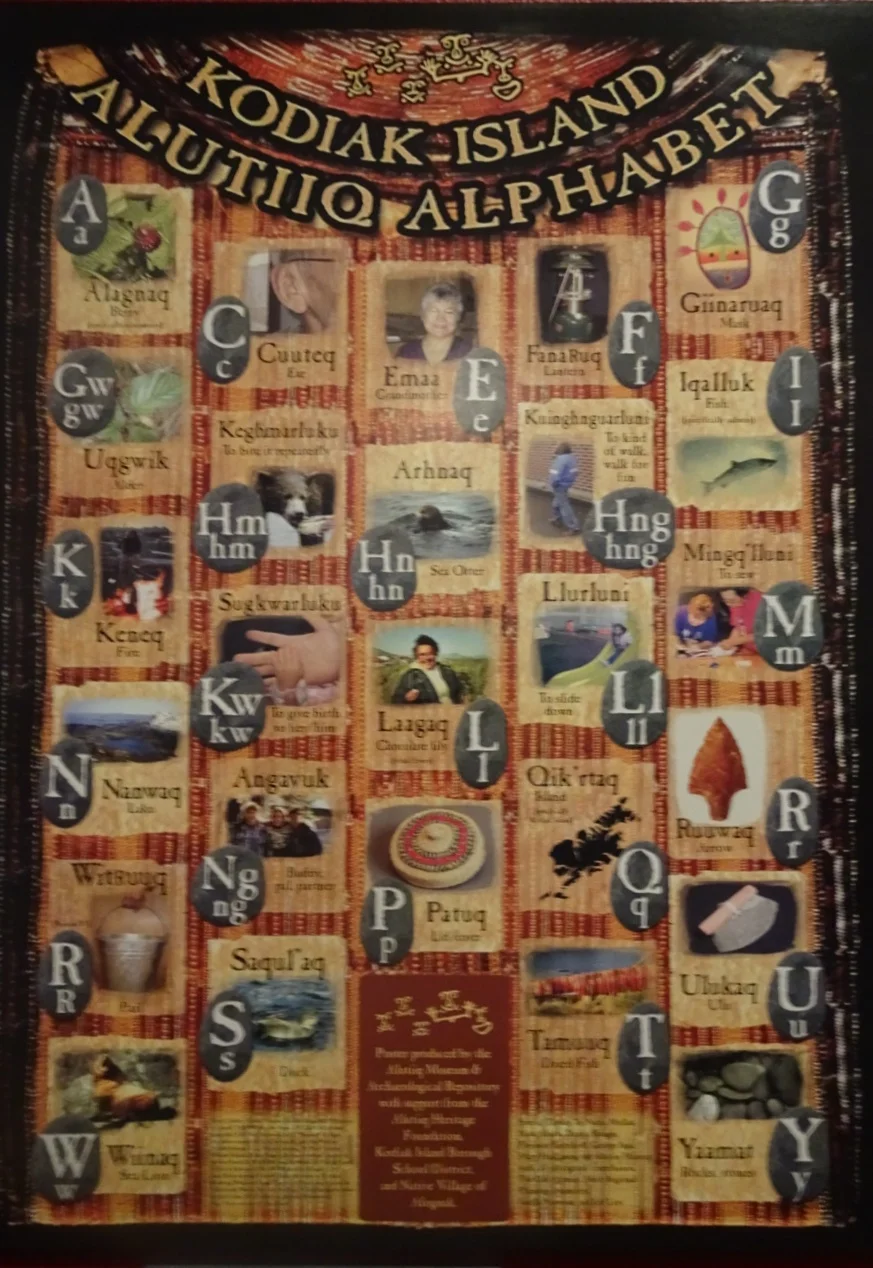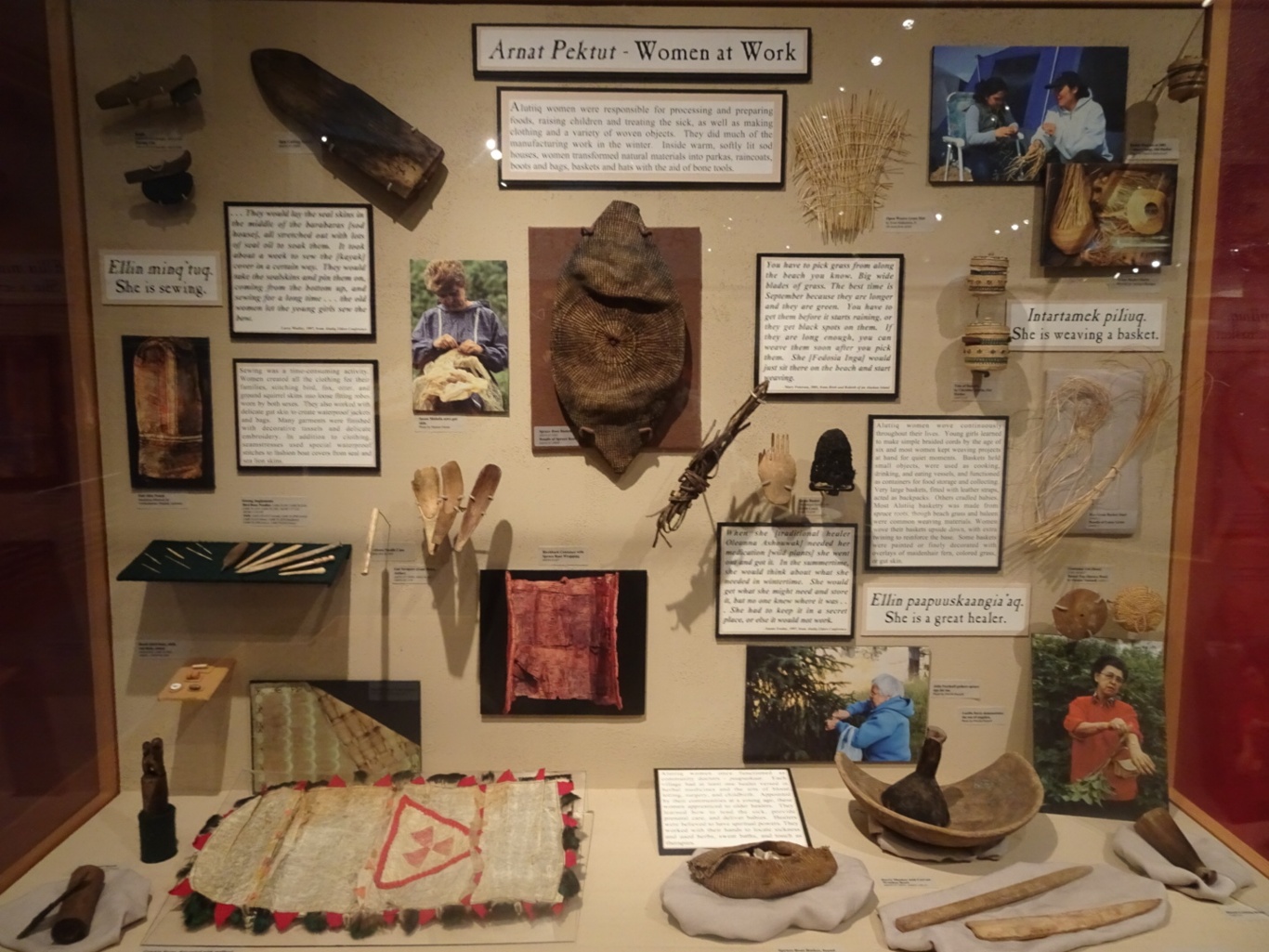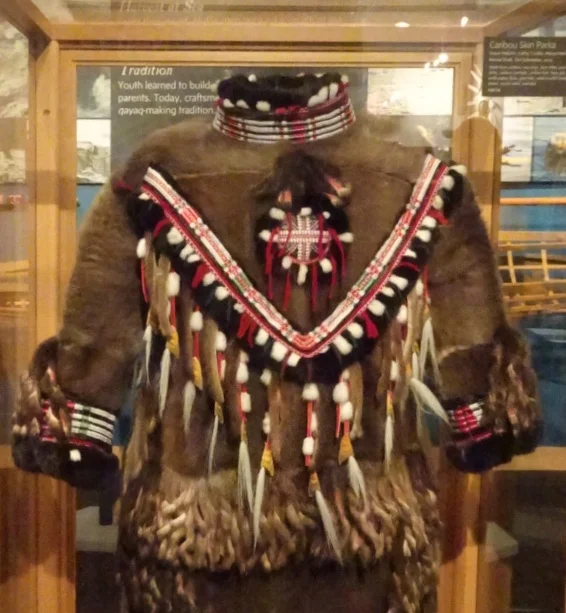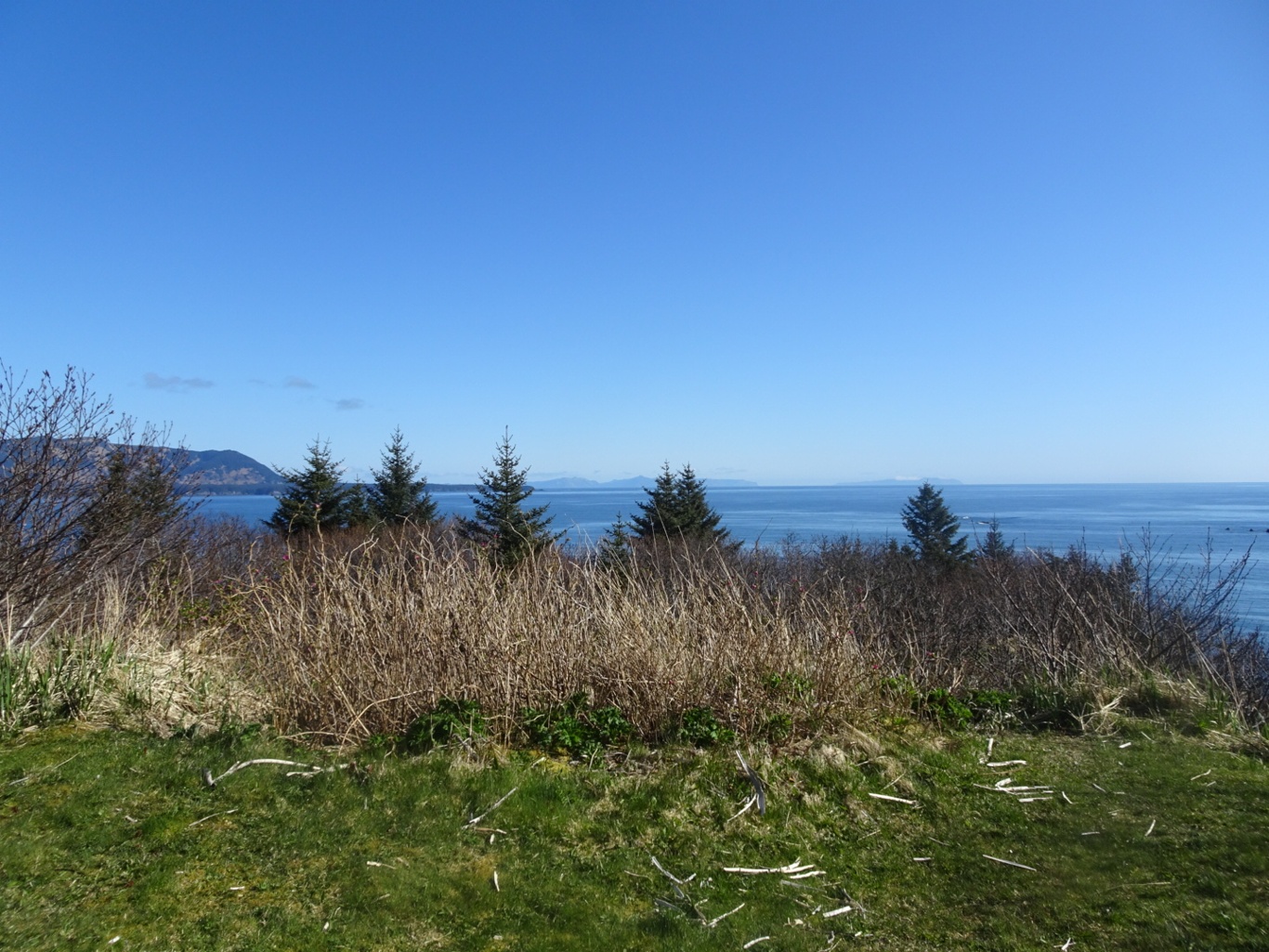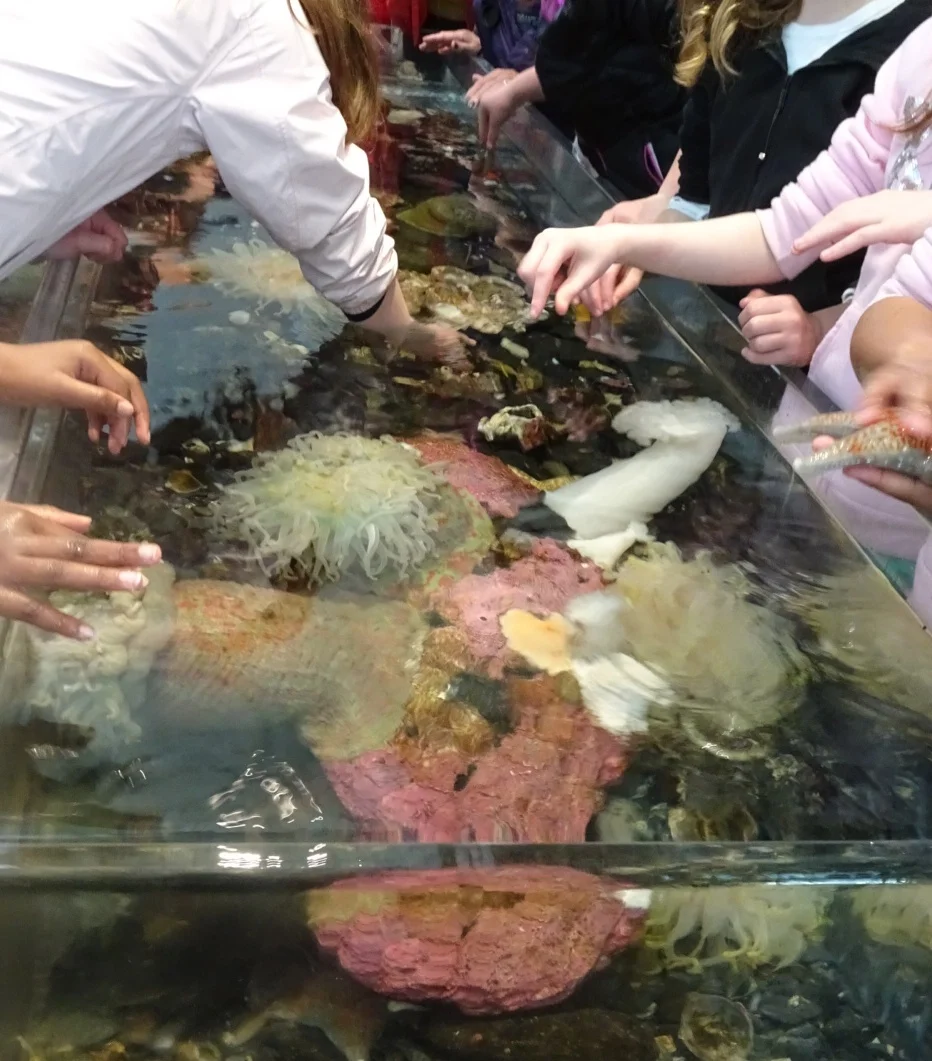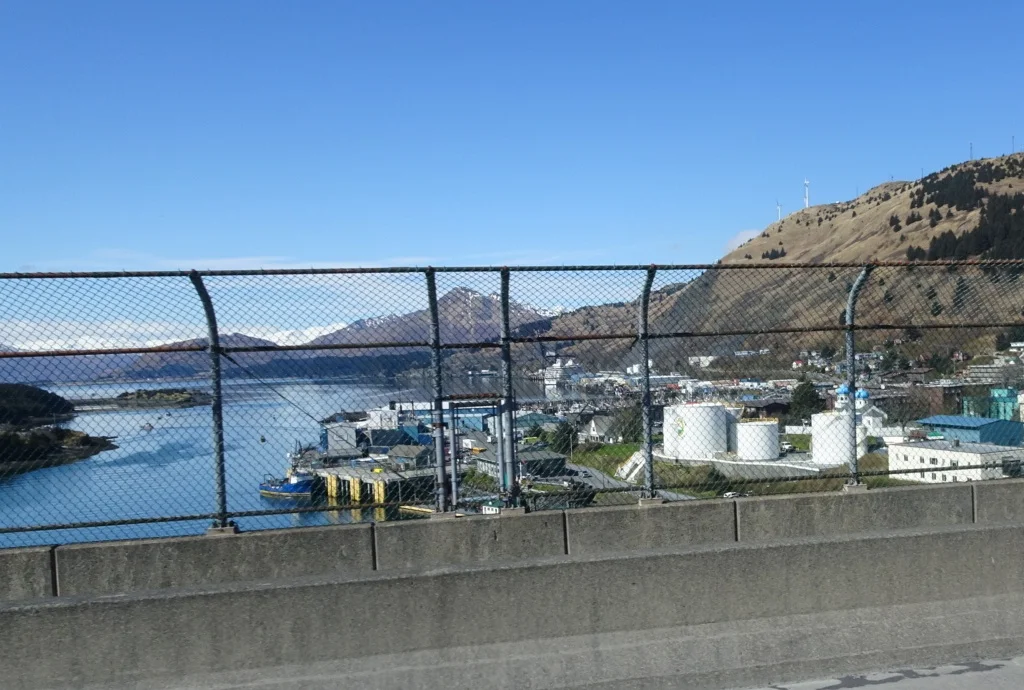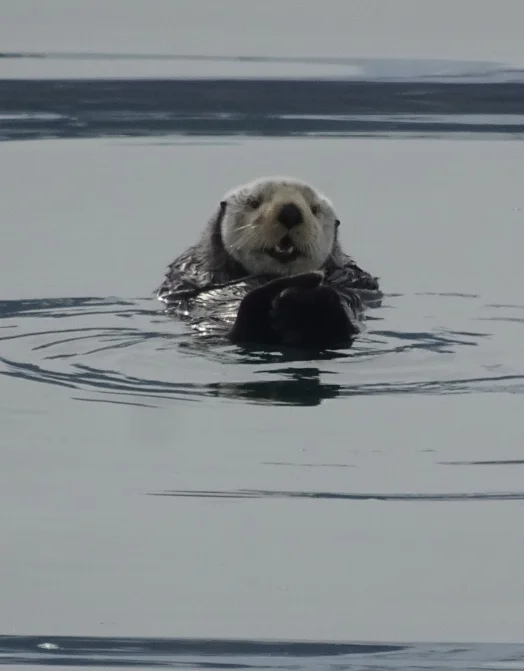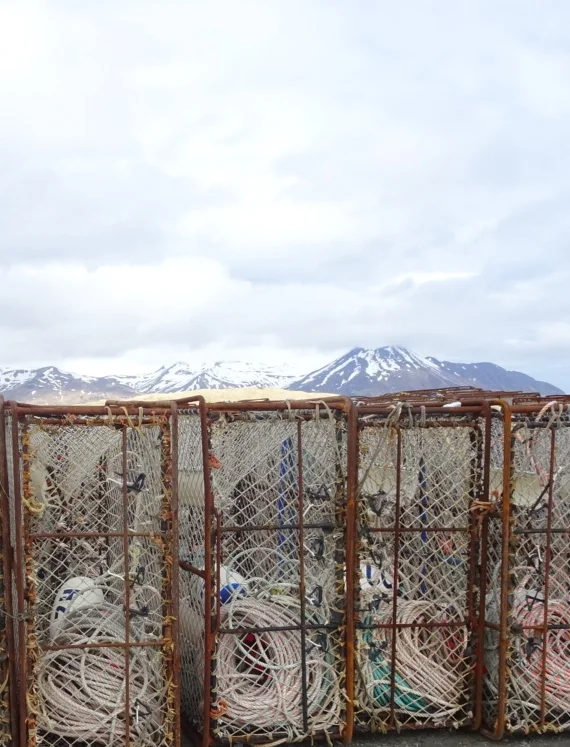Kodiak: might there be bears?
Opening the curtains to see such an amazing view this morning was a delightful surprise. Kodiak really did pull the stops out when it came to weather today and for that we are truly thankful.
The school buses were there for us today again - a little later for some because they needed to deliver children to school before they did anything else. But were were out early - 8.30am - and were ready to make the most of the sunshine.
We smiled as we read the names of the regular users of this bus. Not quite the names we are used to reading.
First stop was the National Kodiak Wildlife Refuge Center, where we were hoped to find out more about Kodiak bears.
We needn’t have worried. The Kodiak bears were the main feature of the exhibition, this large central display showing them fishing for Salmon.
Kodiak bears are huge - up to 8 feet tall - and this model gave a great illustration of their stature.
Their favoured food was laid out on a market stall nearby. I imagine they’d need quite a lot of sustenance and certainly more than a few berries.
Cutest of the cute was this corner showing a mother bear hibernating wtih her cubs. Get right up close and it was possible to hear her “heartbeat” - a double beat and then quiet, double beat, quiet, double beat…..
So there we were, bear information supplied at the first stop, because though there are more Kodiak bears here than ever recorded - 3500 - it’s very unlikely that we’d see a real one.
Across the road we went then, to the History Museum, situated in the oldest inhabited building in Alaska. Recently closed for renovations, it reopened yesterday. How lucky is that?
Formerly known as the Erskine House, one room of the museum had been styled as it might have been back in those days.
The renovations had created a state of the art museum, however, with modern displays and exhibition methods. Aren’t these cute little shoes, with their sea otter fur cuffs and beaded crosses, Russian style?
There were baskets, too!
Some beauties, for sure. In the 1970s classes had been held here at the museum - I’d have been there without doubt.
The last room was filled with stitched portraits of the community, created as part of a project whilst the museum had been closed. They were fantastic, every one and I’d like to have stayed longer to take a closer look at them. But it was time to go.
As we left we noticed the plaque in the garden, marking the high water level from the tsunami of 1964.
It had devastated the whole town and to assist with getting things back up and running again, the US Government sent a Liberty ship to provide accommodation for the fish canning industry. It worked well and as a result, the Trident fisheries still operate from the “Star of Kodiak” and have built their canning factory around it - quite a weird sight in the high street!
We took a look inside the pretty little Orthodox Church of the Holy Resurrection before going into the Alutiiq Museum opposite; another grand little modern museum.
I enjoyed the focus on language here, for though the place isn’t truly bilingual, it was very nearly so and for me, that was fascinating.
Not a quilt, but a poster of the Alutiiq alphabet.
The adjacent display was of “Women’s work” - sewing and weaving small grass baskets! Had I seen this excellent information first, I think I’d have found it useful. Never mind, here was a wonderful collection of tools, such as bird bone needles and needle sharpeners.
There was one magnificent recreation of a Alutiiq costume, stitched by a group of women from the area a few years ago from sea otter fur and other traditional materials. I read how this had been put together just yesterday but can I find the reference?
Anyway, on such a glorious day it was good to spend half an hour or so sitting on a headland, overlooking the sea and watching not very much happen. OK, so there were bald eagles again but oh, how quickly we become blase about these things!
We spotted a papery pink flower on a scrubby little bush nearby - I have no idea what it is but the bright colour caught my eye immediately.
What a magical place to be on such a beautiful day. Apparently yesterday, it was howling a gale so we were incredibly lucky.
We drove through the forest where the trees were laden with moss - there was moss everywhere and the landscape was so distinctive - to our last destination, the Fisheries Research Centre Aquarium and Touch Tank.
The children who arrived there just before us were having a great time handling the sea creatures - this was a great resource for them to learn about the environment that surrounds them and they were all actively engaged in finding out as much as they could. We learned the grey and orange starfish, just off the picture to the right is a leather star and that it did indeed feel like leather, thanks to their careful handling.
As we drove over the bridge towards the harbour, our sleek white ship was there looking as lovely as ever. We looked forward to a nice cold beer in the sunshine…
There it was, a couple of cold Paulaner Hefe Weisse, just as we like it, enjoyed on the pool deck with today’s Mensa puzzles.
Well, we have to keep the grey matter exercised!






